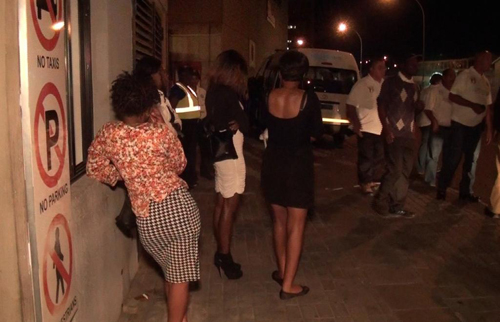Sex workers are vulnerable to human rights abuses and politicising their plight may not achieve the desired outcome, a local commentator has said.
University of Namibia (Unam) religious and moral lecturer Basilius Kasera was reacting to an announcement by rights activist Nicodemus ‘Mama Africa’ Aoxamub that a political party for sex workers and LBTQI communities in the country was on the cards. Aoxamub, who is the executive director of the sex workers’ organisation Rights Not Rescue Trust (RNRT), encouraged those who feel their rights are being violated to join the party when it is eventually launched.
Calls to decriminalise sex work in Namibia have in the past been met with mixed reactions. Kasera opined legalisation of sex work and LGBTIQ+ (lesbian, gay, bisexual, and transgender) have been a hot topic for a while. “Today, they have morphed from being social dialogues to political concerns,” he said.
“The advocates of this sexual revolution embrace simple sets of convictions, particularly that our society is divided between the powerful and powerless or victimiser and victim. These powerful persons, institutions, and structures are the guardians of an oppressive status quo. Sex workers, at least in the present dialogue, consider themselves to be in the group of victims by the current system.”
According to Kasera, the church is part of the social structures of society, with its ethos and moral code. Therefore, Kasera indicated, the moral code holds to certain convictions regarding sexuality and sexual conduct.
‘Political integration’
Kasera added part of society believes the public display of this belief of dignity needs to be embodied through the creation of legal and commercial structures of sex work. According to him, years of failed attendance to this request have now led to the current dialogue of soliciting political power that will represent the agenda of sex workers.
“This prompts questions of political integration and inclusion, which cannot be avoided within a secular democracy. Unfortunately, the quest to ask the church to endorse the sexual revolution or the politicisation of liberal sexual ethics is an overreach. The underlying social imaginary of the church is committed to an ethical code that promotes specific standards,” he said.
While the church does not deny the humanity of sex workers or that they deserve to be treated with dignity, Kasera feels legalising, sex work is in contrast with the canons of the Christian faith. “As the church, we firmly hold that no person should be discriminated against for employment, medical care, and all other life-enhancing goods,” he said. However, he reasoned, the legalisation of sex work only promotes the narrative of dehumanisation. “This is time to think of how we can pull our resources together to create sustainable structures that will provide skills to our citizens.
Taking the route of sex work as employment is a lazy narrative that does not concern itself with the meaning of dignity for the human person. We are also aware that our views should not be made the law but as a majority group within this country, we need to air out concerns regarding the changing social norms.”
Kasera said they will continue to help the needy in ways churches can help but also call upon lawmakers to think humane in the law-making process. He maintained poor policies and programmes can give birth to numerous social ills that compromise human dignity, adding they also become loopholes for opportunistic individuals to prey on vulnerable persons.
‘Welfare issues’
Retired clergyman Ngeno Nakamhela said mainline churches he is familiar with have a diaconal department dealing with welfare issues. He explained the welfare department deals with services to assist the needy and vulnerable who seek aid from the churches. “They help not only the sick but those who find themselves in a situation they didn’t want to.
You may find a sex worker who had no choice, but others chose to do it for an income. This welfare looks and assists people who find themselves in a situation they did not want and need help,” Nakamhela noted. According to him, if churches do not regard sex workers as qualified for the welfare services, then it could be a moral judgmental attitude.
-anakale@nepc.com.na


